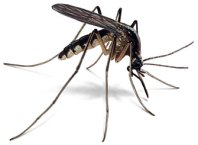Summer is officially here! If you live in Texas like me…Heat + Humidity + Mosquitoes = Miserable Workout! But, there are ways to survive. When temperatures heat up, our bodies have to work extra hard to stay cool and circulate our blood and oxygen. This results in higher than normal heart rates and higher body temps. Actually, you can get an even better workout outside in the summer than the rest of the year, if you do it the smart way. Not only will you burn more calories, but you will condition your heart and lungs and challenge your muscles. Think of it like running on an incline on the treadmill, once you take the incline off and go flat it seems way easier than normal. Same thing with the heat, once temps return to normal you will be surprised by your strength and endurance. Here are my top tips for surviving outdoor workouts:
Hydration, Hydration, Hydration!
This is most important. Plan ahead for your outdoor workouts and then on those days drink plenty of water. Then, about 2 hours before you head outside, you may want to sip on some Gatorade (I like the lower-calorie version “G2”) and then bring a big bottle of H2O with you during the workout. One of those little 8 oz Ozarkas won’t cut it. You better bring 3 of them or get a big 1 Liter bottle or at least the 24 oz one. It’s better to have too much than too little. Also, to keep it cold, you can freeze it the night before (empty a little out first or it might crack) and let it thaw out 4-6 hours before your workout. You can also bring electrolyte chews and G2 powder packets for your bottles. It’s good to have extra electrolyte sources when you sweat a lot.
Adjust for elevated heart rates
A general guideline for your heart rate is to take 220-age to get your Max HR. Then, depending on your training goals, you will workout at a percentage of that (ex. 60-70% of your Max HR). For more on HR read HERE. But, when temperatures get high it doesn’t take much to raise your HR and you may even reach your max bpm (beats per minute). If you are in good shape, then it can be ok to get your HR to the max bpm during interval training as long as you recover. But, when it’s hot outside not only will your HR be higher than normal, but it will take longer to recover and drop back down into the recovery zone (somewhere around 80-120bpm for most). So, just be aware that you are putting extra stress on your heart and you will need to decrease your workout time and/or intensity. Listen to your body. If you feel lightheaded, nauseous or have signs of heat stroke (you stop sweating, feel disoriented, etc.) then stop immediately and cool off inside and drink cool fluids.
How to stay comfortable
When you can, try to stay in the shade as much as possible. If you will be in the sun at all, don’t forget to apply a “sport” or sweat-proof sunscreen. I almost always workout in a baseball cap. It keeps the sweat and hair out of my face and also is good for blocking out sun. Some people like to run in sunglasses. Most regular glasses won’t work good and will just bounce around on your face. Try a sport brand like Oakley, etc. that are made for sports. Clothing is important too. We all love our cotton tees…but they are the worst for workouts. You need to choose fabrics made for sweat-wicking and that are lightweight and won’t stick to your body. My favorite brands for outdoor gear are Lucy and Nike. For socks…same thing…try to avoid cotton or you could get blisters.
Timing
It’s going to take a few weeks for your body to get acclimated to the heat. So, your first few workouts are going to be killer. Take it slow and gradually build up your time and/or intensity and follow the other tips above. Even after the first few weeks, it’s still going to be tough but you can do it and it will get easier! Also, the time of day you workout is very important. Running at noon is not smart. I see people all the time running at Memorial Park during the hottest hours of the day and I think they are crazy. Yes, your body will get acclimated to the heat, but unless you are planning to do your next 5k in the Sahara…don’t mess with it. Do your runs early in the morning or in the evenings. But, if you do night runs, don’t go by yourself and stay in well-lit areas. I like to either go early in the morning or at dusk when it’s still light out.













